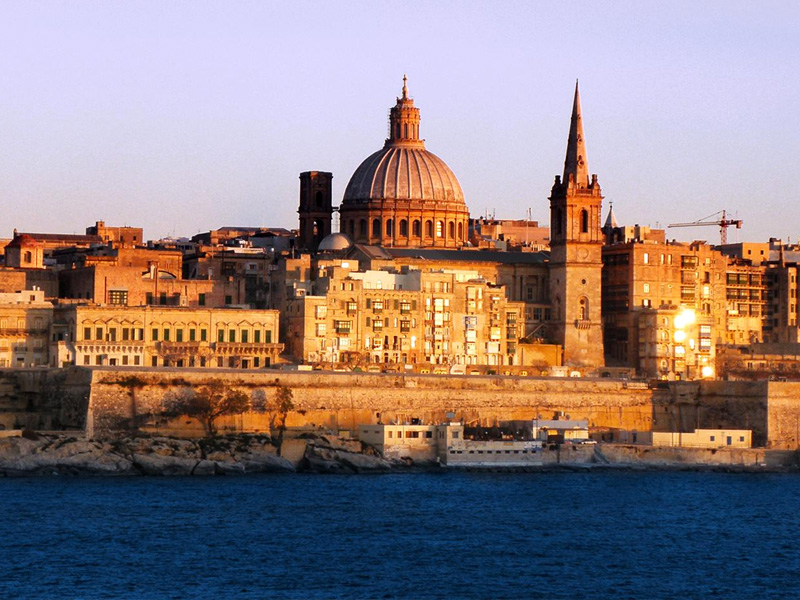Malta is becoming a new magnet for capital after the exodus of non-dom residents from the UK

The numbers speak for themselves: in 2024, 10,800 millionaires left the UK — an increase of 157% compared to the previous year. This means that every 45 minutes, one wealthy person left the country. Among those who left are 78 cent millionaires and 12 billionaires, which makes this outflow of wealth unprecedented in the history of modern Britain.
The reason is obvious: the abolition of the non-dom regime (non-domicile residents) from April 6, 2025, which has existed in the country for more than 226 years, has radically changed the rules of the game for wealthy foreigners. Previously, the system allowed more than 74,000 non-dom individuals, including almost 38,000 long-term residents, to minimize income taxation abroad.
The introduction of a new system based on four-year tax residency has deprived investors of their previous tax planning strategies. Despite the projected increase in tax revenues of £2.7 billion per year by 2028, the state has lost a significant portion of current revenues: non-dom individuals who left annually brought in £8.5 billion in taxes, investing on average £118 million and donating £5.9 million to charity.
Against the background of these changes Malta is confidently coming to the fore as a new safe haven for mobile capital.
A Mediterranean alternative with serious infrastructure
Malta's success is not an accident, but the result of systematic and strategic work over the past ten years.
According to Kenneth Camilleri, an expert in tax planning and immigration:
"We are now witnessing how families who previously chose only London or Switzerland are seriously considering Malta due to its professional level, tax advantages and quality of life."
- The regulation complies with institutional standards, but it is characterized by efficiency.
- The legal system is based on English common law, which facilitates the integration of international lawyers and investors.
- Malta has no inheritance, gift and wealth taxes, which makes it particularly attractive for family inheritance planning.
Europe without bureaucracy
Malta's membership in the EU is not just a formality.
- Access to the market of 447 million consumers with a combined GDP of over $15 trillion.
- The use of euro eliminates the risks of currency volatility.
- Regulatory harmonization facilitates cross-border activities.
After Brexit, British citizens lost their automatic right to reside in EU countries. And Maltese residents retain visa-free access to Schengen for 90 days every 180 days.
Where ancient harbors meet the modern financial system
- More than 300 sunny days a year
- English is the official language
- One of the safest regions in the world
- Distances — maximum 45 minutes to any point of the island
Malta offers a lifestyle and infrastructure comparable to London, but with much more comfortable living and business conditions.
Powerful professional ecosystem
- More than 13,000 professionals are employed in the financial sector (12% of GDP)
- There are 25+ international banks
- Assets under management increased by 150% in 5 years (up to €50 billion)
- Legislation on blockchain and cryptoassets is one of the most advanced in Europe
Flexible and fast immigration programs
- Malta Permanent Residence Program (MPRP):
- Permanent residence for 4-6 months
- The opportunity to obtain a temporary status until the completion of the procedure
- Global Residence Program (GRP):
- Fixed rate of 15% on foreign income transferred to Malta
- Minimum tax is €15,000 per year per family
- Purchase of real estate from €220,000 or rent from €8,750 per year
The processes are fast and predictable, which distinguishes Malta from other European programs known for their bureaucracy.
Network effect and limited features
- Foreigners already make up about 20% of Malta's population, which is 4 times more than ten years ago.
- A real international business environment has emerged: partnerships, investment projects, and educational networks are developing rapidly.
- The growing demand may lead to more complicated access conditions in the future — the current availability may be temporary.
New home port for capital
Malta offers regulatory reliability, tax efficiency, access to European markets and a high quality of life — combined, this is an offer that traditional financial centers can no longer compete with.
This is not an escape from the UK, but a strategic transition to more profitable opportunities.
As Camilleri emphasizes:
"The families we work with don't act on impulse. They analyze, compare and choose Malta as a more profitable platform for managing their future."